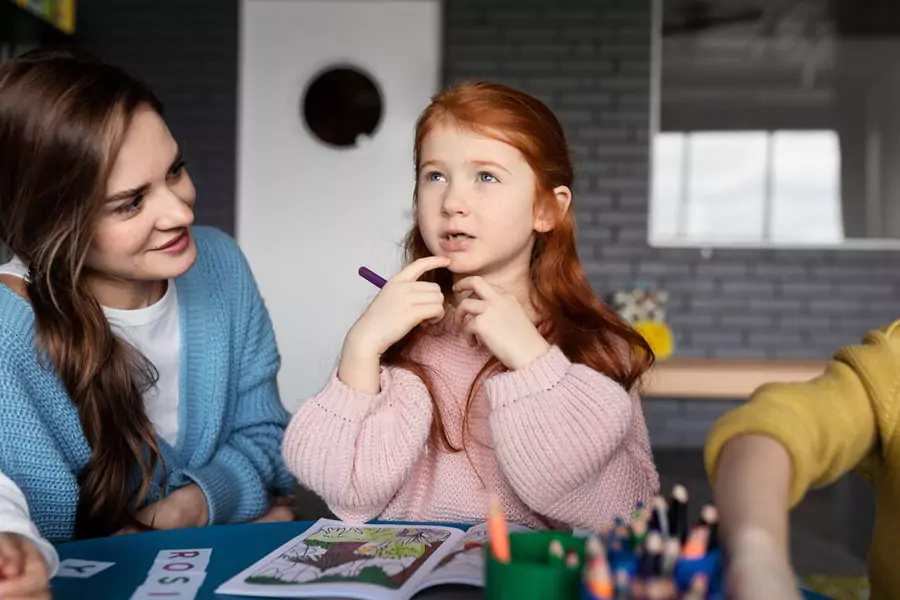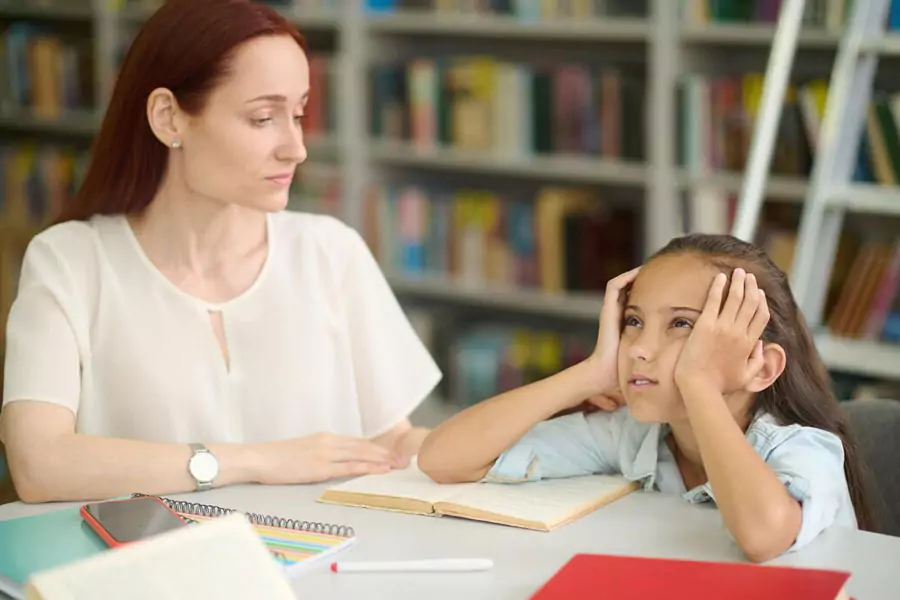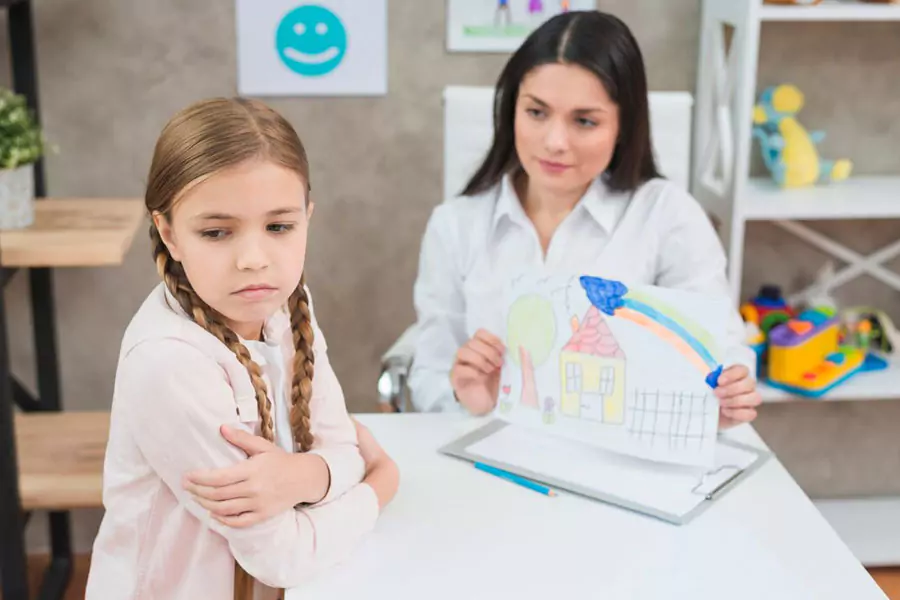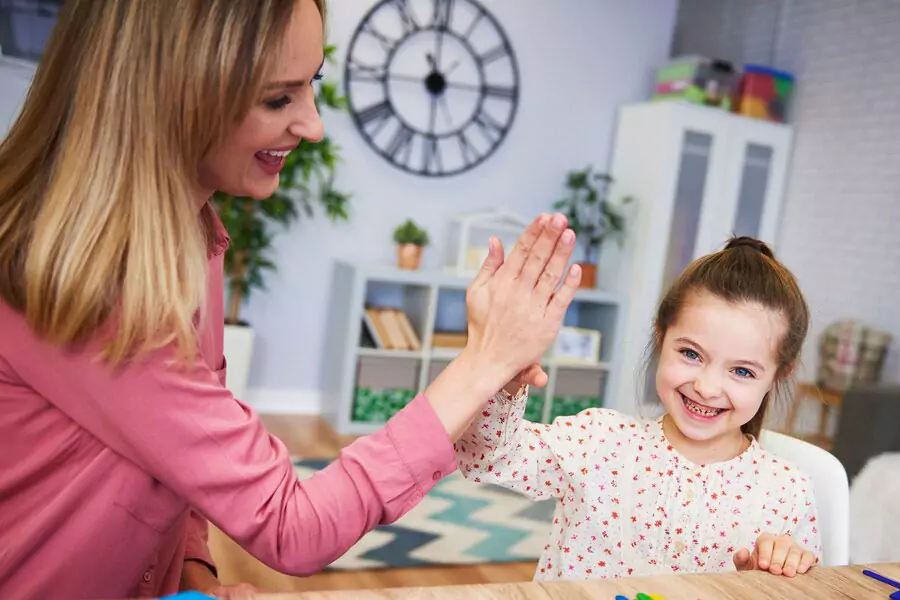
If you’ve ever stood at the preschool door with your child clinging to your leg, you know the mix of emotions that come with it. Pride, tension, guilt, excitement — yes, all at once. Recently, a Dublin, CA, parent shared her story:
“When my daughter started preschool here in Dublin, CA, I thought I was ready. I’d bought the little backpack, labeled every snack container, and told myself that I’d be strong. But the moment she burst into tears and wouldn’t let go of me, I felt my own stomach twist.”
Separation anxiety in little ones is quite common. It doesn’t mean that something is wrong with you as a parent or with your child. It’s simply what happens when young children, who’ve spent almost all their days with family members, suddenly have to step into a room full of new faces.

Every child reacts differently. Some cry and scream. Others get really quiet, almost shutting down. One couple said that their son used to complain of “tummy aches” every preschool morning. Another parent revealed that her little one just froze at the door and wouldn’t move.
Fear is the common denominator: an anxiety of leaving those they trust the most. In early childhood, children don’t yet distinguish time, so to them, a few minutes might as well be an eternity. That is why the first day of a new school year is commonly overwhelming for them: it’s such a big change.

Starting preschool can be tough for both you and your child. The following tips help make drop-offs easier and help your child feel safe and confident.
Instead of a few days before, you should start talking to your child about preschool weeks in advance. Kids like to know what’s coming. You can start by telling your child about fun things like painting, playing outside, snack time with friends, and other such activities. You’ll notice that your child has started asking questions. It is a good sign.
If possible, visit the preschool before the big day. In Dublin, a quick walk-through at Nurture Kids will bring fruitful results. Such visits help kids see where they’d sit, where the toys are, and even where the bathroom is. Meeting the teacher in advance will also make a difference. When the child sees a familiar face on day one, it feels less like being dropped into the unknown.
The hardest part at drop-off is often the goodbye. Your instinct might be to stay until your child settles down, but most teachers will gently encourage you to keep it short. A quick ritual can help. It can be a hug, a kiss on the cheek, and a simple phrase like, “See you after snack time!”
It won’t feel like magic right away. There may still be tears. But little by little, your child will start to trust the pattern: you leave, and you come back, just like you said you would, children feel safer when they see you go and know you’ll return.
It’s not unusual to hold back tears after drop-off. Many parents cry in the car, but in the classroom, they smile and keep their voices light. Young children act like emotional mirrors. If children see you’re worried, they’ll feel worried too.
Even if it feels tough inside, showing steady confidence helps your child feel safe. It’s also normal to admit this stage is hard. Parenting is a rollercoaster, and those big firsts weigh on you just as much as they do on your child.
One trick that often helps is letting your child bring a small family photo in their backpack. Some kids prefer a favorite stuffed animal or a blanket. These little reminders of home can make the classroom feel less scary.
At Nurture Kids, teachers understand that transitional objects can ease the adjustment. Over time, they won’t require such objects. However, it will be a huge help in those first few weeks.
Preschoolers don’t understand “later” the way adults do. Telling your child, “I’ll be back soon” might not mean anything to them. What can work better is saying, “I’ll see you after nap time” or “I’ll pick you up after you play outside.” Linking your return to something in their day makes it easier for them to grasp.
You can’t stress enough how important it is to lean on the teachers. At Nurture Kids, the staff know exactly how to help when your child starts to cry — a toy, a game, or even a quick distraction. It’s easy to feel like your child is being left alone, but they’re actually stepping into a space full of caring adults who do this every day.
Share helpful details with teachers. For example, if your child loves bubbles, let them know. When tears appear, the teacher can use that info to calm your child.
If your child has spent most of their time with you, preschool can feel like a big step. Practicing short separations beforehand can help. You can leave them with grandparents for an afternoon or with a babysitter for a little while. Such experiences teach your child that yes, you leave, and yes, you always come back.
Consistency is your best friend. Stick to the same pattern for drop-off, the same goodbye routine, and roughly the same arrival time each day. That predictable rhythm gives your child something to hold onto.
By the second week, mornings will usually go smoothly. There may still be tears, but they won’t last as long. One morning, your child might even surprise you by waving and walking into class on their own.

That first day of preschool in Dublin, CA, is a milestone for you and your child. Separation anxiety is just a matter of a few days.
At Nurture Kids, we don’t just welcome young children into our classrooms; we welcome parents into a community. If you’re preparing for preschool in Dublin, let us be part of your journey.



Copyright wenurturekids © 2025. All Rights Reserved
